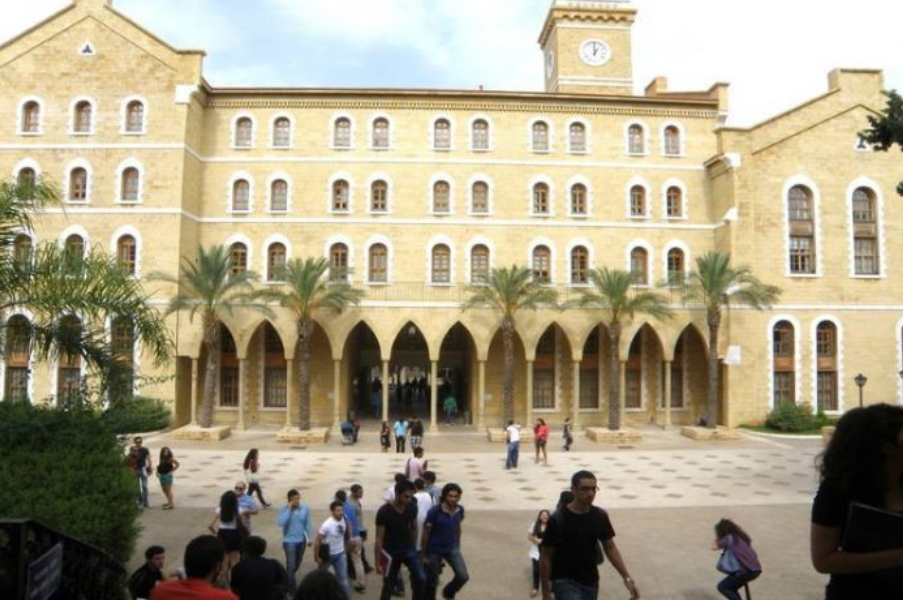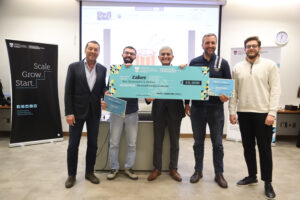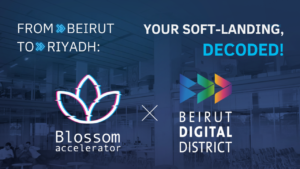As part of Google’s AI Impact Challenge, the American University of Beirut (AUB) was selected amongst 2,600 global organizations, from 119 countries, and awarded USD1 million. The Google AI Impact Challenge called for ideas from nonprofit organizations, social enterprises and research institutions globally, to help address societal challenges, using AI. Based on the proposal submitted, AUB’s innovative project has placed Lebanon on the global map. The expert team is set to develop a water management project with the funds received.
AUB is one of only 20 organizations around the world who won a grant. AUB will use the funding to improve irrigation water management practices through machine learning (ML) models in the Middle East and North Africa (MENA) region. Their role will include enhancing thermal satellite imagery, gathering local weather data and obtaining agricultural data from farmers on water consumption for crops. AUB’s main goal is to develop a technology to enhance irrigation practices, working closely with farmers. Once complete, the technology will provide real-time water-use data predictions to farmers, to aid them in making better informed irrigation decisions and to ultimately conserve water.
According to AUB’s website, the team spearheading this project includes: “Professors Fatima Abu Salem (Computer Science , Faculty of Arts and Sciences) who will lead the AI and ML component of the project, Hadi Jaafar (Agriculture, Faculty of Agricultural and Food Sciences) who will lead the project overall as well as the remote sensing and smart irrigation component, Samer Kharroubi (Nutrition, Faculty of Agricultural and Food Sciences) who will lead the statistical modeling and analysis component, and Mazen Saghir (Electrical and Computer Engineering, Maroun Semaan Faculty of Engineering and Architecture) who will lead the embedded systems and Internet of Things component.”
Google was on the search for socially useful and scalable applications that utilize AI and allocated USD25 million, to different organizations. Once the projects are completed and tested, they will be shared globally, through open-source code.
“Obtaining this grant is an affirmation of the quality of our faculty members and of AUB. It also allows us to explore the positive impact of AI at a time when there is a great deal of negative press on AI and its impact on jobs, privacy, and other matters,” said Dr. Fadlo Khuri, President of AUB.
The Google AI Impact Challenge will also grant winners access to Google’s expertise, and receive coaching from Google’s AI experts. AUB’s team of Professors behind the project have already traveled to San Francisco, with the 19 other chosen organizations, to begin executing the project. A six month program, until November 2019, will pair startup specialists from Google’s Launchpad Accelerator, Google’s AI experts and project managers with each organization, for coaching and mentorship sessions. Each organization will also have to set their OKRs (objectives and key results) to set the roadmap to complete the project.
The other winners of the Google AI Impact Challenge include:
- Columbia: Colegio Mayor de Nuestra Señora del Rosario, developing a technology to detect illegal mines that pollute community drinking water
- USA: Crisis Text Line, a nonprofit organization working on detecting when people are facing an emotional crisis, to deescalate the situation
- Australia: Eastern Health, working on studying clinical records from ambulances and find patterns in suicide attempt cases, to intervene earlier
- UK: Full Fact, developing a technology to promptly asses claims by politicians and the media
- Indonesia: Gringgo, building a technology to combat the country’s plastic waste problem
- Brazil: Hand Talk, working towards translating Portuguese into sign language, for the deaf to read and write
- Switzerland: HURIDOCS, developing a tool to help human rights lawyers research cases in a swifter manner
- Uganda: Makerere University, working on a technology to forecast air pollution
- Global: Médecins Sans Frontières Foundation, developing technology to help less experienced medical professionals prescribe the right antibiotic
- USA: NYU, working with New York City Fire Department to improve response times
- Nexleaf Analytics, working on technology to track vaccine distribution around the world
- USA: Penn State University, developing prediction tool for location and time of landslides, with warning system
- Quill, developing online education system for underprivileged children to provide immediate feedback
- Rainforest Connection uses acoustic monitors and AI analysis to detect signs of illegal logging in rainforests–like the sound of chainsaws or trucks–and then sends real-time alerts.
- Netherlands: Skilllab, helping refugees automatically translate skill profiles, to connect with local occupations
- USA: Talking Points, developing translation system for non-English speaking parents to connect with their children’s teachers
- The Trevor Project, enhancing tools for emotional analysis and natural language processing, to detect risk of suicide amongst LGBTQ community
- India: Wadhwani AI, helping farmers reduce use of pesticides
- WattTime, working on model to monitor emissions from power plants




